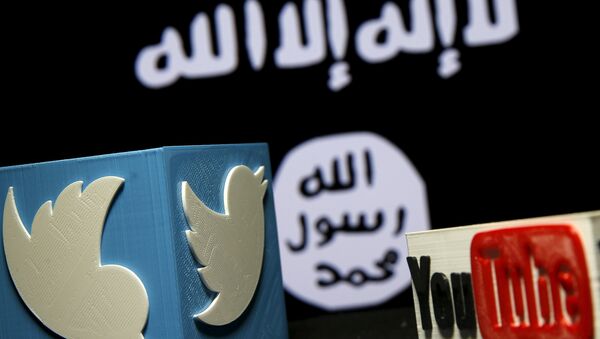WASHINGTON (Sputnik) – Last week, Obama and Gulf Cooperation Council (GCC) country leaders held a summit in Riyadh where they discussed a range of issues including the Iran nuclear agreement and security cooperation, among others.
"Pressure points remain on Yemen, Syria, Iraq, Iran’s threats and future role in the region, human rights and the propagation of an extremist ideology," Jordan said on Monday.
Outside of GCC joint military efforts, Jordan noted, no major announcements were issued as a result of Obama’s visit to Saudi Arabia, which is unusual in a summit environment where "deliverables" are negotiated ahead of time and announcements made.
"A pledge of US support for a GCC military force is positive, but it remains to be seen whether the GCC can actually assemble a viable force," the former ambassador suggested.
In terms of the energy situation, Jordan explained, Obama probably does not worry about low oil prices except as it encourages further hydrocarbon consumption and discourages alternative investment.
"US support for Saudi development of a non-oil economy would be welcome if it is meaningful."
Meanwhile, the Obama administration has been warning US lawmakers about the economic fallout that could follow if Congress goes forward with legislation that would allow families of victims of the September 11, 2001 terrorist attacks to sue the government of Saudi Arabia.



